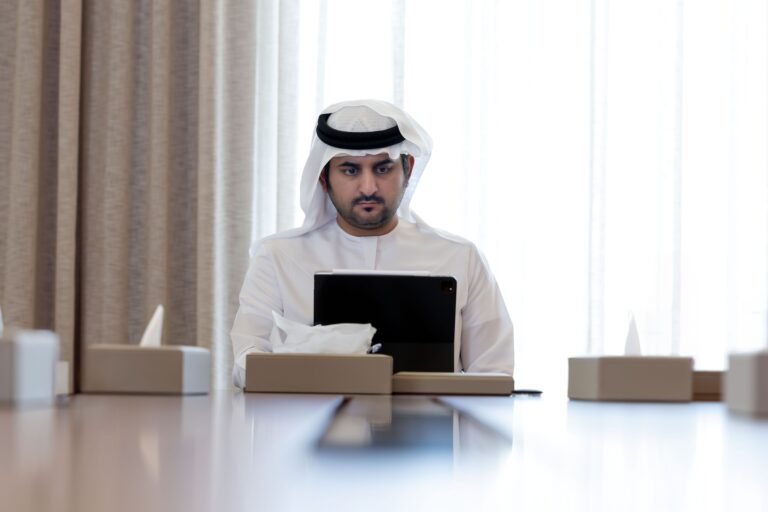The Executive Council of Dubai has approved a series of new initiatives and programmes aimed at supporting its ambitious economic agenda, positioning Dubai among the world’s top three urban economies by 2033.
H.H. Sheikh Maktoum bin Mohammed bin Rashid Al Maktoum, First Deputy Ruler of Dubai, Deputy Prime Minister and Minister of Finance of the UAE, and Deputy Chairman of The Executive Council of Dubai, chaired the Council’s meeting. He emphasized Dubai’s strategic vision under the leadership of His Highness Sheikh Mohammed bin Rashid Al Maktoum, Vice President, Prime Minister, and Ruler of Dubai, which has established an agile economic model making Dubai a premier global investment destination.
Sheikh Maktoum introduced the Foreign Direct Investment (FDI) Development Programme, allocating AED25 billion over the next decade to attract AED650 billion in investments, directly supporting the D33 economic agenda goals.
“Dubai has built an integrated, unique, and inspiring economic model, featuring advanced enablers and tools to enhance decision-making, create a broad array of promising opportunities, and attract top talents and global investment,” Sheikh Maktoum stated. He also highlighted the Dubai Economic Model, which will utilize 3,000 performance indicators to monitor Dubai’s progress toward its economic targets.
Sheikh Maktoum added, “Dubai continues to lead in urban planning and sustainable urban mobility with residents able to access all key services through convenient, efficient, and sustainable transport systems. Consequently, Dubai has become one of the best places in the world to live and work.”
The Council’s meeting was attended by H.H. Sheikh Ahmed bin Mohammed bin Rashid Al Maktoum, Second Deputy Ruler of Dubai and Deputy Chairman of The Executive Council, and H.H. Sheikh Ahmed bin Saeed Al Maktoum, Chairman of the Dubai Civil Aviation Authority and Deputy Chairman of The Executive Council.
The FDI programme aims to attract international companies and support the expansion of existing businesses in Dubai, aligning with the emirate’s goal of becoming one of the world’s top three economic cities. The programme highlights Dubai’s competitive advantages, including its logistics infrastructure, strategic location, talent pool, and status as a global commercial hub.
The Dubai Economic Model will use an integrated framework, interactive dashboards, and policy impact assessment reports to track economic development and measure progress against D33 targets. This approach will enable data-based decision-making.
The model consists of three main components: a database of over 3,000 indicators covering macroeconomic and sector-specific data, systems to measure and forecast economic performance, and tools for economic reporting and interactive dashboards. These tools will help leaders assess policy impacts, measure sector performance, enhance transparency, and boost consumer and investor confidence.
Overseen by the Department of Economy and Tourism, the model will study economic performance scenarios while the Dubai Digital Authority will design a roadmap for data management and classification, using AI tools to enhance the model’s capabilities.
The Executive Council also approved a plan to develop areas around Metro stations to enrich economic opportunities, enhance public transport interconnectivity, and improve sustainable transport efficiency. The plan includes incentives for developers to utilize plots around Metro stations, supporting the ’20-minute city’ concept, increasing Metro usage, and enhancing Dubai’s sustainability and quality of life.
Key aims of the plan include increasing public transport use to 45%, reducing carbon emissions to 16 tonnes per capita, improving public spaces to encourage walking, and increasing shaded areas. The plan also seeks to boost populations around stations and diversify residential, commercial, office, and service spaces.
The Council approved the ‘Manbar’ programme, aimed at doubling the number of citizens working in mosques and empowering them with necessary skills and qualifications. This programme supports the goals of Dubai Social Agenda 33, fostering strong and tolerant families proud of their values and identity.
Additionally, the ‘Ghras Al Khair’ programme will empower content creators and young influencers to promote values of tolerance and cohesion, supporting educational initiatives and enhancing community awareness.
These initiatives underscore Dubai’s commitment to sustainable economic growth, social wellbeing, and maintaining its position as a leading global city.


